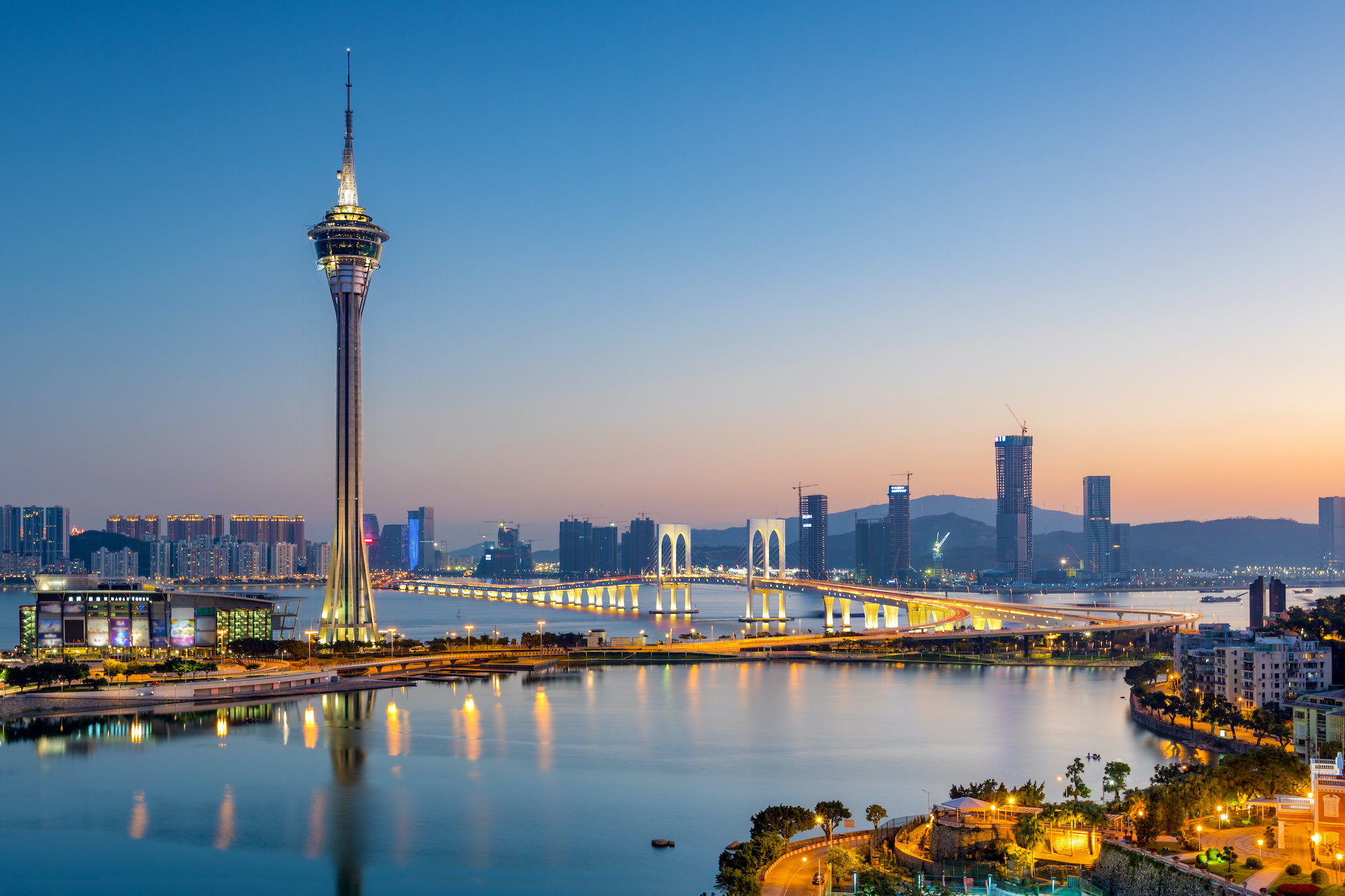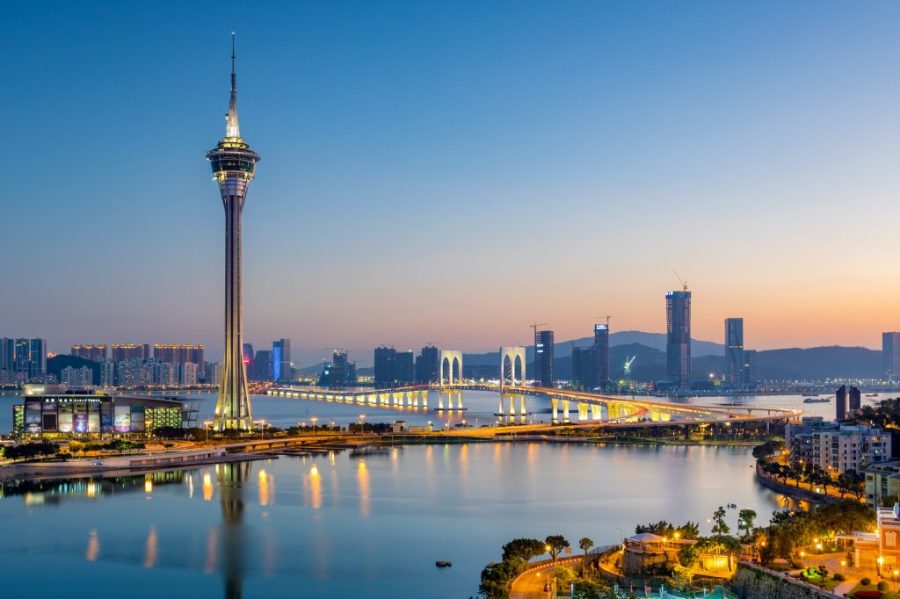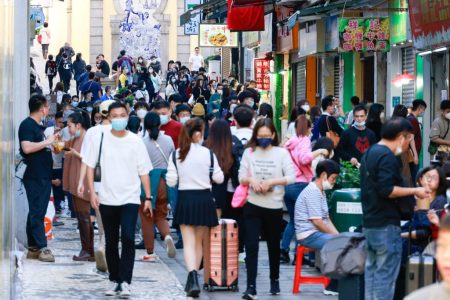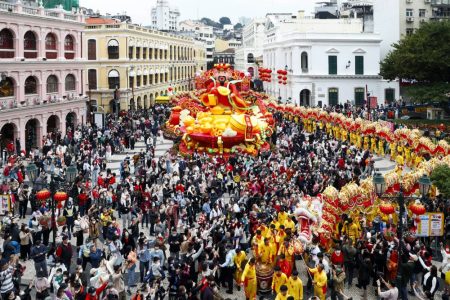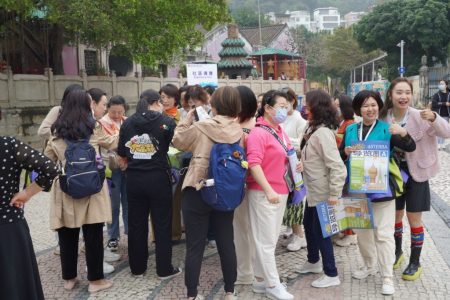Macao’s tourism industry is headed for a minor revolution over the next few years as it shifts focus away from gaming and concentrates more on attracting quality tourists in the wake of the Covid-19 pandemic.
A report authored by consultancy firm Deloitte for the Macao Government Tourism Office (MGTO) forecast that by 2025 the city’s tourism business would be thriving once again, with up to 41 million visitors a year staying in 53,800 hotel beds and spending around MOP 64 billion on non-gaming products.
Deloitte was commissioned to examine the MGTO Tourism Industry Development Master Plan which aimed to map out the direction of the industry up till 2030.
One of the key findings of the report noted that the pandemic has impelled the tourism industry to restructure and upgrade, and make the shift to value-added tourism services.
Back in 2019, Macao welcomed 40 million visitors, but that number was cut to 5.8 million in 2020 due to the onslaught of Covid-19. Deloitte’s report suggested that the pandemic “offers an opportunity for Macao to optimise its tourism industry structure” and diversify its tourism products.
Pulling no punches, the report criticised the city’s tourism industry for inadequate supporting facilities infrastructure, poor human resource talent development and lacklustre urban planning.
It also pointed to other drawbacks such as the dominance of the gaming sector; the millions of visitors from the Greater China region who stay for only a couple of nights or less; and the poor development of the potentially lucrative MICE, culture and traditional Chinese medicine industries.
“Macao needs to reinforce its regional integration and collaboration,” the report’s authors stressed.
“Due to the differences in the regional legal systems, the tourism authorities of Guangdong, Hong Kong and Macao are currently formulating the regulatory mechanism according to their own laws, and the professional qualification and practising policies for tourism in the Greater Bay Area still require further development.”
They added that the city’s tourism business faced several threats, principally “fierce competition from other destinations in the region such as Vietnam and Thailand, plus the development of Hainan as a tax-free haven for mainland tourists.”
The report highlighted other important factors. The Guangdong-Hong Kong-Macao Greater Bay Area Plan has put forward new policy positioning, while sustainable development as proposed by the United Nations and enhanced support for small and medium-sized enterprises has set a new direction for local economic development.
“At the same time, the development of the online-based tourism industry and the deepening of the public-private collaboration have pushed forward new trends,” the report added.
The review proposes nearly 100 possible actions under the Master Plan covering six main areas: tourism products and facilities, quality tourism and collaboration, precision marketing, urban construction, smart technology, as well as regional and international cooperation.
More specifically, Macao should promote maritime tours, ecological tours and high-end tour products; set up training programmes, enhance quality tourism, optimise public-private partnership and foster “tourism +” development; improve cooperation with e-commerce companies and online media, and leverage big data analysis on precision marketing targeting high-value visitors.
The lengthy to-do list also included developing new attractions and strengthening sea, land and air connectivity; tapping into the application of innovative technology to upgrade visitors’ experience and the business environment; deepening tourism cooperation with Hengqin and other cities in the Greater Bay Area, and pushing for the resumption of travel and people-to-people exchange with other regions.
In particular, Deloitte suggested targeting what it described as “high-value target segments”, meaning young couples, white-collar workers, middle and high-class families and Generation Z by adjusting tourism products according to visitors’ preferences, providing themed tourism experiences, promoting diversified consumption and maintaining product uniqueness and newness.
“The traditional interests of visitors to Macao are shopping, gastronomy, entertainment and leisure, sightseeing and business travel. In recent years, some emerging demands have developed rapidly, such as wedding photo shooting tours, health tourism and wealth management,” the report concluded.
